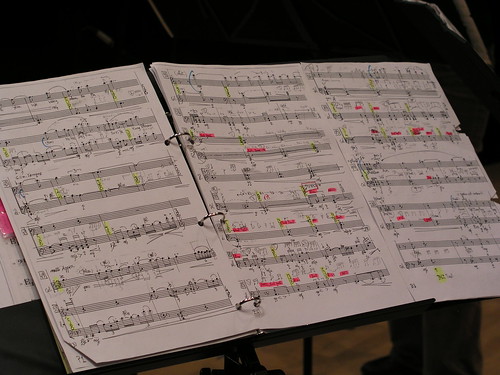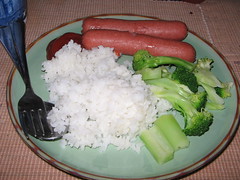
‘2007.10.19-111c.am’ courtesy of ‘RShinozaki’
Library of Congress, Coolidge Auditorium György and Márta Kurtág & the Keller Quartet
After the Library of Congress’ recent parade of the rather bland contemporary American music, the premiere of a new work by Kurtág performed by the composer and his wife and long-time duet partner Márta was like a breath of fresh air. Exquisite comes to mind, as does vital. It was an honor to share in this celebration of a national treasure of another nation.
The programs describes György Kurtág as one of the world’s foremost composers, which is certainly true in certain circles. He has served as Professor of Piano and Chamber Music at the Ferenc Liszt Academy of Music, Budapest, as composer-in-residence at the Berlin Philharmonic Orchestra and the Vienna Konzerthausgesellschaft, and has a list of awards, honors and recordings too lengthy to even describe here. In America, Kurtág’s name is better known than his music still, I think, and the music is better known through recordings than through live performances. The experience of performances of works almost always exceeds the experience of hearing recordings of those works, but in Kurtág’s case, the contrast is particularly striking.
Much work has been done in the press and printed program to connect this concert to a Library of Congress concert of Kurtág’s countryman Béla Bartók. Bartók’s storied performance with violinist Joseph Szigeti, performed the at the Library of Congress in 1940 marked the premiere of Bartók Sonata No. 2 for violin and piano. (In a spirit of full disclosure, I should mention that the recording of that recital was a staple of my undergraduate listening regime.) Continue reading

